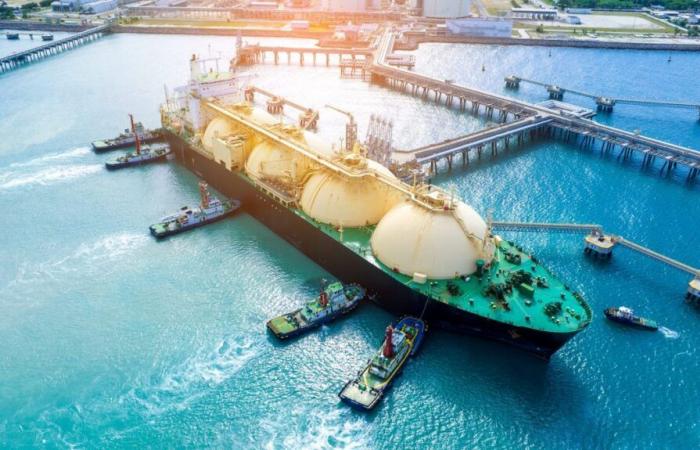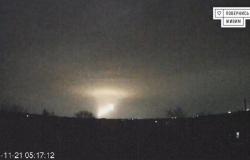Their comments follow remarks by European Commission President Ursula von der Leyen last Friday, who told reporters that US liquefied natural gas (LNG) supplies could support “trade deficit” discussions.
“We still get a lot of LNG from Russia and why not replace it with American LNG? “, she added.
“It makes perfect sense to propose this,” says Andreas Schroeder, head of energy analysis at the analysis firm Icis.
“The United States is a reliable partner and Europe desperately needs gas for at least 10 years. This makes sense (…) and it can also play a role in reducing the trade deficit [américain] ».
Donald Trump imposed a series of tariffs during his first presidential term and he promised to introduce more during his latest campaign, mainly against China, although he also called the EU a “mini China “.
However, EU and member state policymakers may have limited scope to increase U.S. LNG supplies.
“The intention is to get more American LNG, but there is nothing Ms. von der Leyen or Mr. Trump can do about it,” said Mike Fulwood, a senior fellow at the Oxford Institute of Research. energy companies, adding that the decision was in the hands of buyers and sellers.
Consensus croissant ?
Sanctioning Russian LNG would open the way to more US imports by creating a supply gap that European companies could fill, several analysts say.
Europe is on track to import similar volumes of Russian LNG this year as the record set in 2022 of around 20 billion cubic meters (Gm3), according to preliminary ship tracking data from Kpler.
The continent is currently still in dire need of Russian LNG but when global production capacity increases significantly from 2026-2027, it could reduce its dependence, explains Massimo Di Odoardo, vice president of gas and LNG research at Wood Mackenzie.
“If Europe imports less Russian LNG, inevitably this will be offset by more American LNG,” he adds. “My perception is that consensus is growing among EU countries to sanction Russian LNG. »
Sanctions
The EU plans to completely do without Russian LNG by 2027, recalls Mr. Schroeder.
The European Commission plans to present a roadmap early next year to end Russian gas imports before 2027.
However, member states are divided on the issue of sanctions, according to analysts. “It is very unlikely that they will decide to sanction Russian LNG,” said Mr. Fulwood.
Mr. Schroeder is also skeptical. “I don’t see the sanctions coming so quickly. So far, they have not managed to agree on sanctions, not only because of Hungary, but also because of the French position because TotalEnergies has too much to lose,” he explains. , noting that the only agreement to date concerned transshipments.
But without sanctions, European buyers cannot break long-term supply contracts with Russia and replace them with American LNG.
Long-term agreements
Still, the EU could implement policies to encourage energy companies to source from the United States, some analysts say.
“The EU could create a more favorable policy framework that would provide more clarity for European suppliers to secure more U.S. LNG contracts. European buyers can certainly become more committed to purchasing American LNG,” Mr. Odoardo said.
“For the EU to use US LNG as leverage to limit US tariffs, the EU should further support long-term contracts to further facilitate US final investment decisions. »
“With the United States, you could find an agreement for 10-year contracts, with much more flexibility,” Mr. Schroeder said. “It’s a proposal to make to the Americans.”






